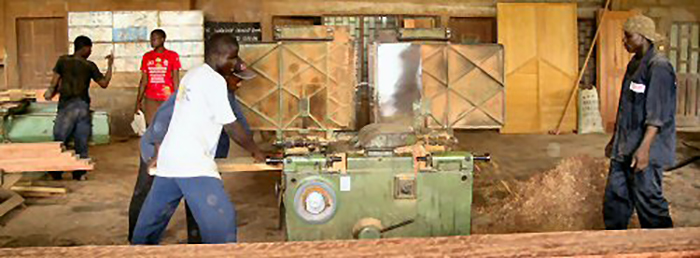Practical training is a key activity. It is organised by the Development Company, based at the Company workshop. Training programmes are structured to:
- improve farming methods, including produce marketing to provide for local needs and for cash-trade within the Cameroon economy. An understanding of crop-rotation as an alternative to agrochemicals is urgently needed. Veterinary services for pigs and chickens also need to be supported.
- develop the cultivation of crops that are well-suited to the conditions in KMD; avoid crops that might become surplus. (Village interviews in the Bassosi area indicated that 80% of farming effort is given to Cocoa and Coffee to be sold for cash: often with a poor cash yield.)


Improvement of infrastructure as a prerequisite for economic growth. Training in construction would include: small building projects, septic tanks and drainage systems (and their maintenance), water supply, tracks between villages and tracks to market, foot bridges and culverts.

A conventional education develops skills for administration. Many societies do not value technical skill; so these skills are not well rewarded. If craftsmen prosper, then local schooling might appreciate practical skills.
